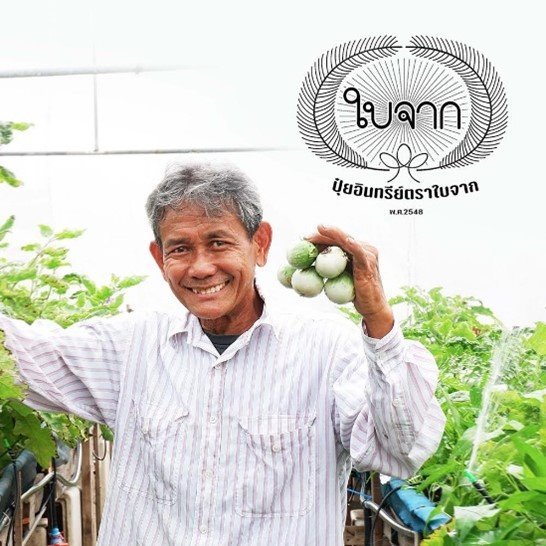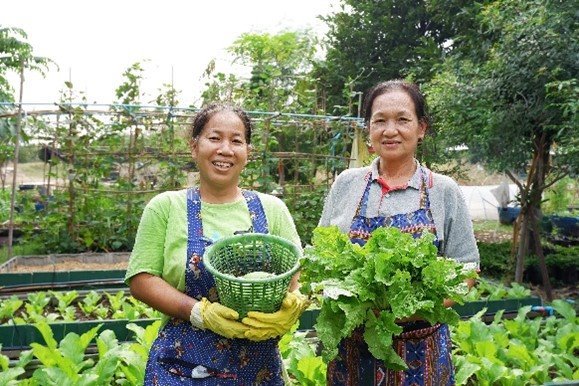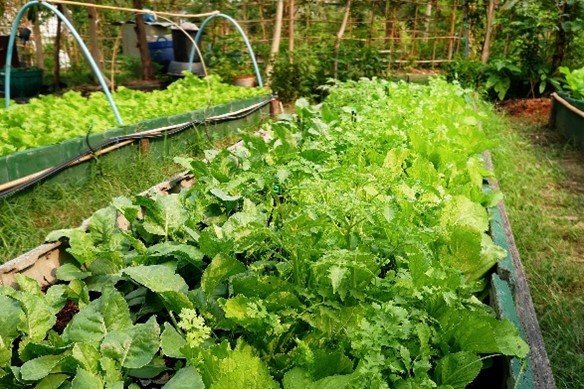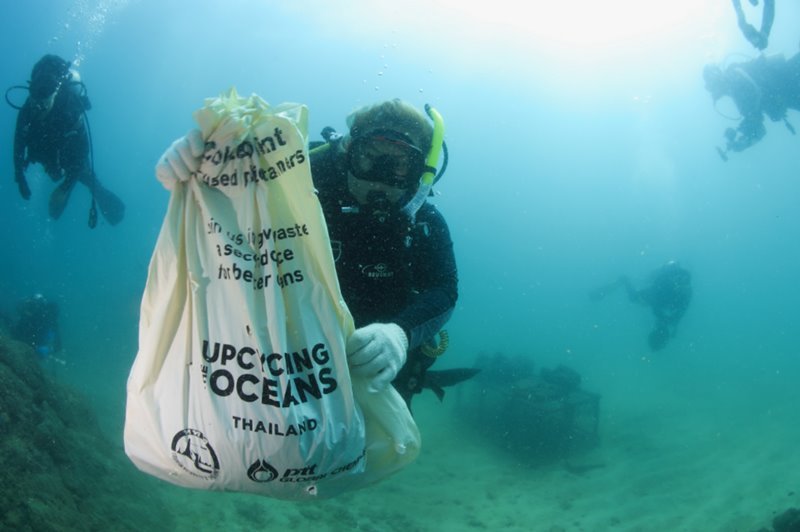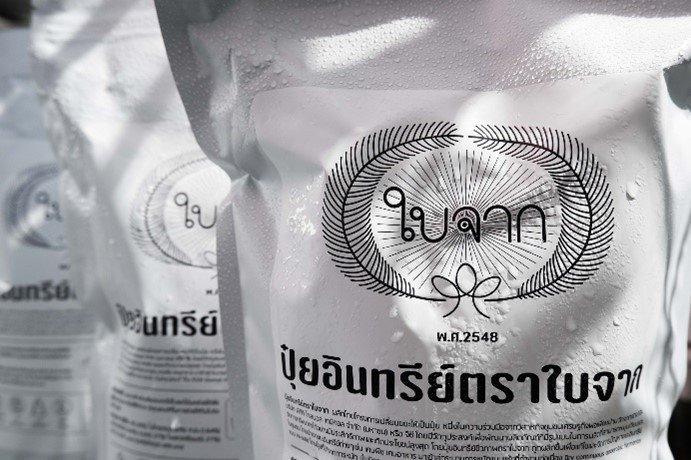
The story of the ‘Baijak’ organic fertilizer brand reflects the cooperation and involvement of a temple, households and a community with a shared goal of transforming food waste into a valuable resource that maximizes the use of resources instead of routine disposal – making this no ordinary fertilizer.
“The temple has a kitchen where leftover food scraps were initially thrown into the trash and left to the dogs and to rot. Naturally, I thought it would be better for the scraps to be reused to reduce waste and alleviate the waste collection process. So we started making organic fertilizer for our own use in the temple since 2005,” said Phra Methi Wachirasophol, Abbot of Wat Chak Daeng describing the initial idea. “At first, we made it in small volumes with a goal of reducing our food waste. Subsequently, the calculation of the formula for fertilizers was continuously adjusted until we became more proficient in making it. We later decided to encourage the community to join us as they were dealing with the same problem with large amounts of food waste being generated every day.”
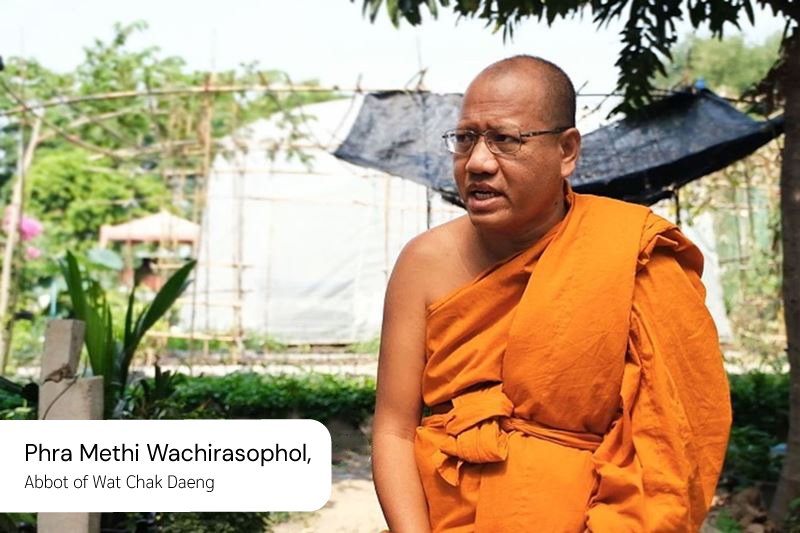
The project to turn waste into fertilizer was developed as one of a number of collaborative projects between Baan Wat Chak Daeng (Khung Bangkrachao)’s Community Enterprise for a Sufficiency Economy, Wat Chak Daeng and GC, that incorporates producing new products through resource efficiency and a circular production model ensuring maximum benefits. It also aims to solve and manage the problem of organic waste in the community in the hope that Wat Chak Daeng can be a learning center and a model community with efficient waste management, providing job creation and incomes for people in the community.
About 60% of the total waste generated in the temple and community every day is organic waste. Therefore, transforming organic waste into fertilizer helps reduce the amount of waste in the environment and reduces the government’s burden on waste collection.
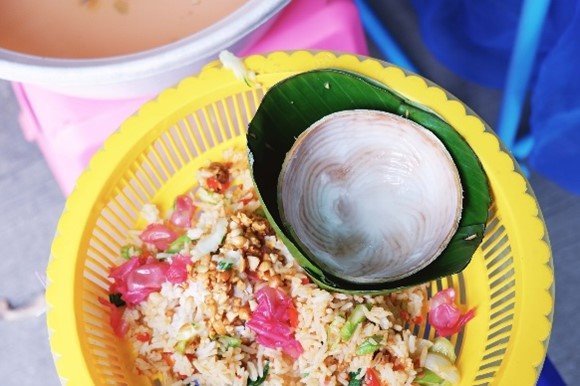
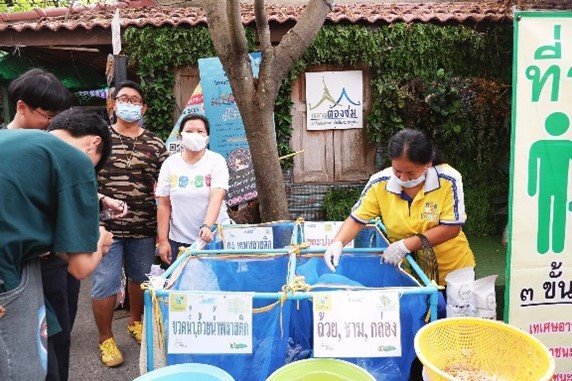
Phra Methi Wachirasophol said that at present, there are more than 40 households participating in the community and about 200 kilograms of food waste are collected each day. They can bring their food waste to the temple or to seven collection centers throughout the community, which are then picked-up by the temple to produce fertilizer daily. Additionally, those interested in turning food scraps into fertilizer for their own use can visit the temple to learn how to make compost and the temple will provide an eco-friendly bin for use in making homemade fertilizer.
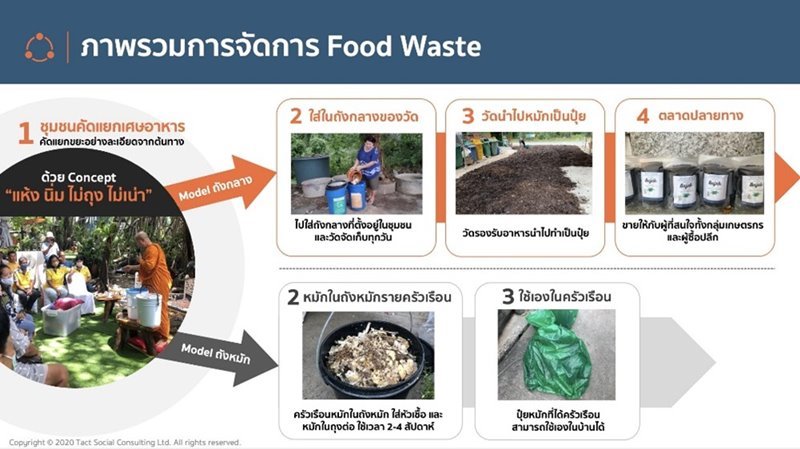
The process of making organic fertilizer starts with taking various types of organic waste such as food scraps, plant scraps, and fruit peels which are then ground into smaller pieces before going through the Dry Continuous Anaerobic Fermenter (Hi-Solid) process. The resulting humus fertilizer is easily absorbed by plants.
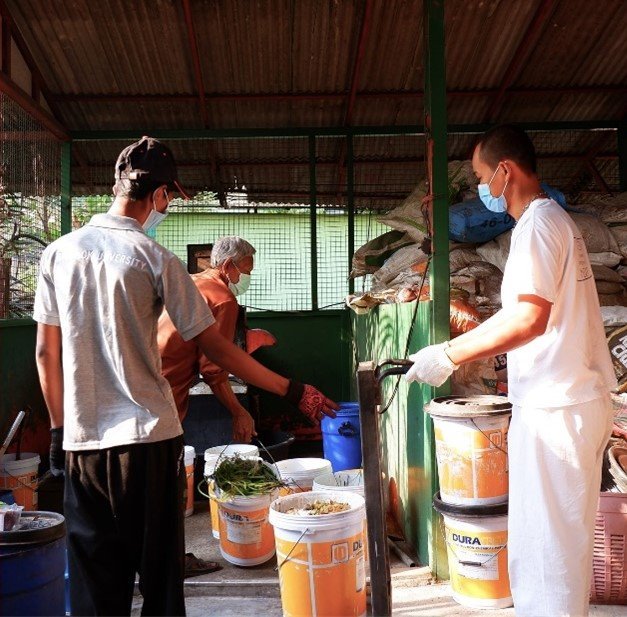
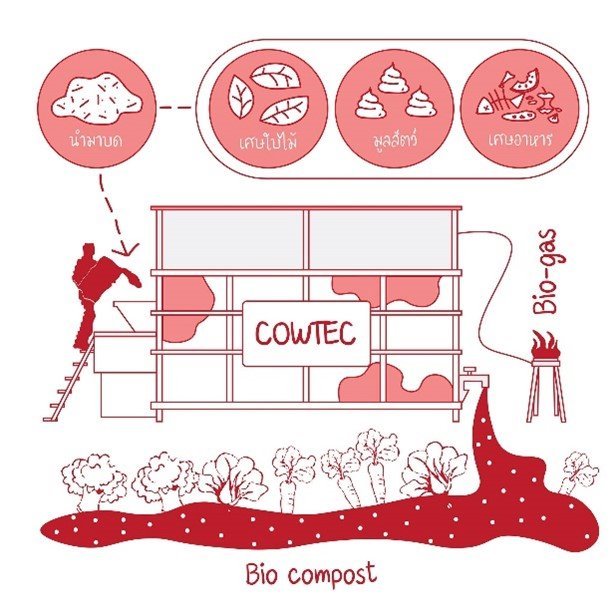
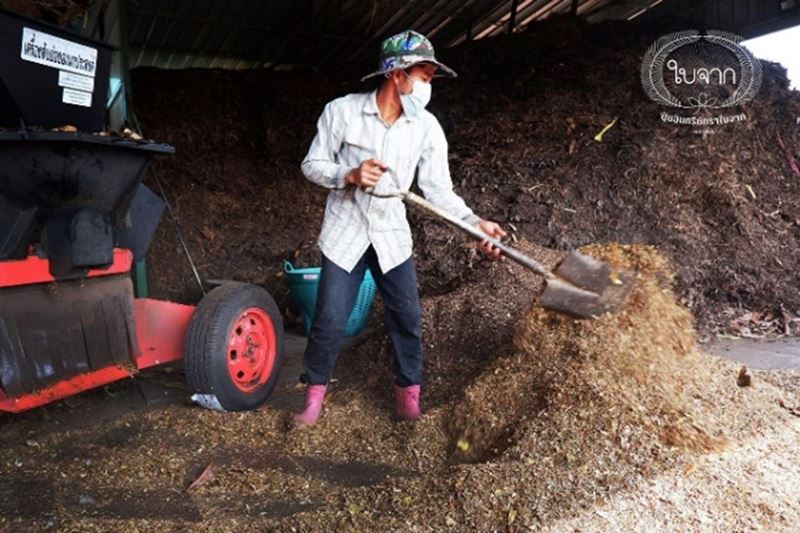
The production process of Baijak organic fertilizer
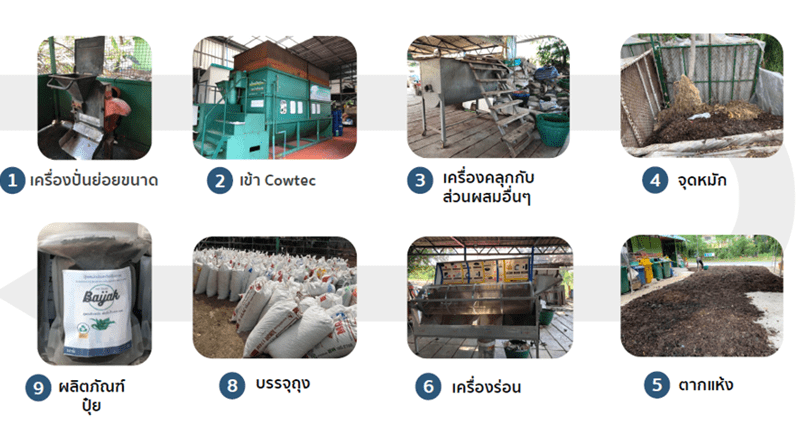
Properties of Baijak organic fertilizer
This fertilizer is suitable for foliage plants and fruit trees because it helps improve the soil’s texture and quality, making it crumblier and allowing more air. The increased space between the soil grains results in an increasing amount of oxygen in the soil. This helps the plant’s root system to grow and hold water and nutrients, and also increases the soil’s microorganisms. The Department of Land Development has certified the quality of Baijak organic fertilizer.
“Vegetables that use Baijak organic fertilizer are tastier and last longer, and have less residue that is easily washed away,” said Phra Methi Wachirasophol.
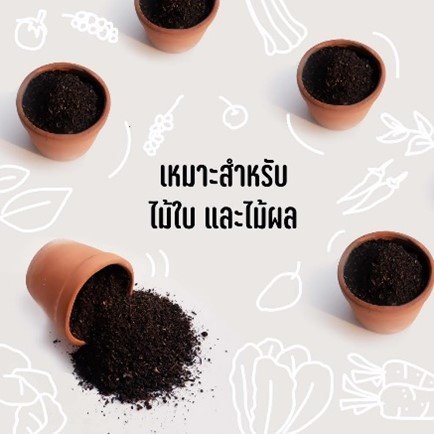
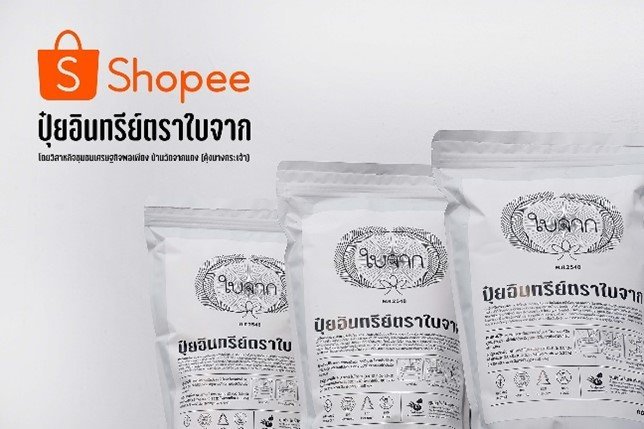
Baijak organic fertilizer can be purchased at Wat Jak Daeng, Baan Wat Jak Daeng’s Community Enterprise for a Sufficiency Economy (Khung Bangkrachao) or through online channels including Facebook: ปุ๋ยอินทรีย์ตราใบจาก (Baijak Organic Fertilizer) or Shopee: https://shopee.co.th/watchakdaeng?smtt=0.0.9
Supporting Baijak organic fertilizer is like supporting the temple and community with their waste management – producing organic waste through more efficient use of resources that leaves no waste and causes no damage to the environment. Baijak is not only an organic fertilizer, it also represents the sense of cooperation to reduce and reuse large amounts of waste in the form of fertilizer which improves the soil’s fertility contributing to the growth of plants and trees. Additionally, this platform reflects the heartwarming story of this temple, and the households and communities who are collaborating to make the world more sustainable.
